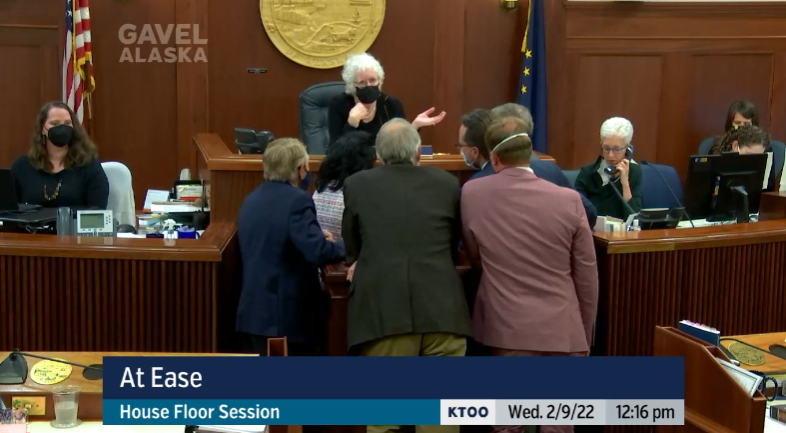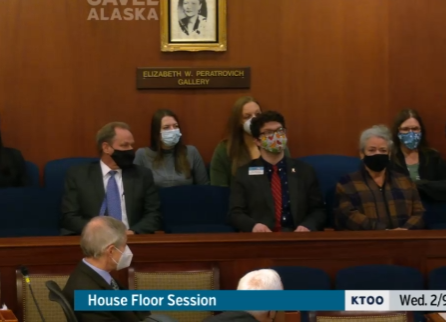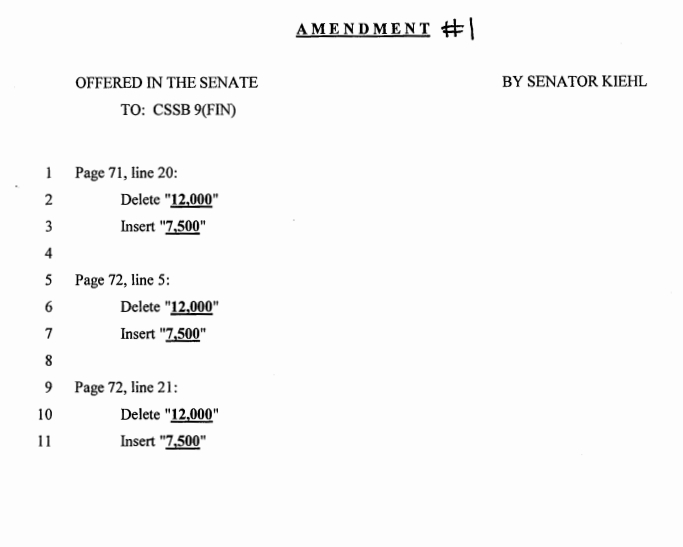
Today's the State of the Judiciary at 11 a.m.
But first, the House Education Committee is holding a hearing with the free/reduced tuition for essential workers bill. It's set to gavel out for the House floor session at 10 and resume at 330.
w3.akleg.gov/includes/_play…
#akleg
But first, the House Education Committee is holding a hearing with the free/reduced tuition for essential workers bill. It's set to gavel out for the House floor session at 10 and resume at 330.
w3.akleg.gov/includes/_play…
#akleg

SB10 by Sen. Tom Begich passed out of the Senate last year on a 12-7 vote. He starts off by noting that the bill needs to be updated since it was written for last year.
He says providing these opportunities could be "potentially life-changing" for frontline workers.
He says providing these opportunities could be "potentially life-changing" for frontline workers.
Begich: "It's clear that there's been a wildly uneven recovery."
He says this could give frontline workers a "hand up as the dust settles." Then talks about some of the earning power of higher education and technical training.
He says this could give frontline workers a "hand up as the dust settles." Then talks about some of the earning power of higher education and technical training.
After emerging from the Senate, it's a pretty limited program. Limited application window, limited window to use the funds and limited total spend on the program.
It'd cap the tuition spend to $2.5 million, funded with federal covid relief funds.
It'd cap the tuition spend to $2.5 million, funded with federal covid relief funds.
Begich says that federal relief funds often get used in ways that are "less than appropriate" because they contain the flexibility to do so, he says a tuition program like this actually makes sense and gets to the heart of what the federal relief dollars are intended for.
In a bit of technical explanation, they go over the need to update the dates in the bill. Begich says if they don't, it'd be a zero-cost bill.
Rep. Prax wonders if the bill is "broad enough.": "I understand your point that really all workers are essential. When we come down to it, they're essential to somebody."
He's wondering if they should have options for like insurance training or "Microsoft Office Suite" classes
He's wondering if they should have options for like insurance training or "Microsoft Office Suite" classes
Begich says that they can't address EVERYTHING and adds that they're working within a limited amount of money.
His aide, Loki Tobin notes the program is available to anyone with fewer than 90 credit hours. Covers college, avtec and has room to create other programs.
His aide, Loki Tobin notes the program is available to anyone with fewer than 90 credit hours. Covers college, avtec and has room to create other programs.
Rep. Cronk wants to know what "accountability" there is in the program. "If they take that opportunity and doesn't get to anywhere" can the state force them to pay it back?
Begich notes it has GPA requirements, attendance requirements and advancement on degrees.
Begich notes it has GPA requirements, attendance requirements and advancement on degrees.
To clarify, if you don't graduate or lose eligibility, you don't have to return the money.
Begich says life changes and people drop out for unforeseen reasons: "A grant is a grant. ... Life if life. You shouldn't be penalized for it."
Begich says life changes and people drop out for unforeseen reasons: "A grant is a grant. ... Life if life. You shouldn't be penalized for it."
Begich concedes that the bill is narrow in scope. He says it's about keeping the costs palatable to the Legislature: "I always believe in the art of the possible."
The bill also requires applicants to fill out their FAFSA forms, which means people might not even need to use the state grant money.
Begich adds that it's a way for the state to get prepared for the federal infrastructure jobs.
Begich adds that it's a way for the state to get prepared for the federal infrastructure jobs.
Up now is Sara Perman, gov't relations for the University of Alaska, who's talking about UA's role in "reskilling and upskilling" Alaskans.
UA supports this bill.
UA supports this bill.
Should have an asterisk on that bachelor's degree*
*Except for Bachelors in Journalism.
*Except for Bachelors in Journalism.
That's it for SB10 for today. They're holding onto it.
They'll be back at 330 with bills on the Base student allocation formula.
They'll be back at 330 with bills on the Base student allocation formula.
• • •
Missing some Tweet in this thread? You can try to
force a refresh













